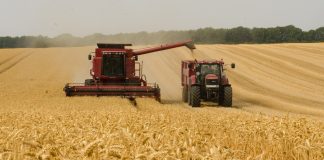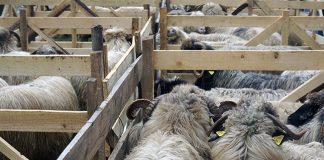
Photo: Pinduoduo
The coronavirus disease (COVID-19) global pandemic has prompted many Chinese farmers to source vital supplies online in preparation for the spring planting season in that country.
The disruption to traditional supply chains as a result of COVID-19 has increased demand for agricultural supplies on e-commerce platforms.
China’s large population of farmers traditionally sourced their supplies from traders and local distributors; however, they were now looking to online platforms to buy fertilisers, chemicals, seeds and machinery.
Supply chains across the country have been affected due to factory closures, residential quarantines and roadblocks.
In February, Chinese e-commerce platform Pinduoduo reported a near 1 000% increase in the sales of farming products including seeds, fertiliser and sprinklers compared with last year.
Alibaba’s Taobao marketplace also reported that sales of farming machinery, including tillers, seed drills and cultivators, had shown a 78% year-on-year increase, while purchases of seeds and fertilisers rose over 100%, and animal feed sales rose 233%.
“We have observed a significant trend that farmers are now relying on their smartphones to buy their equipment online,” a statement by Pinduoduo said.
The statement added that more than 4,3 million agricultural producers bought farming essentials on the platform last month.
In recent years, the Chinese government had encouraged e-commerce penetration in rural areas as part of a poverty alleviation drive, because purchasing supplies online was cheaper than buying supplies from physical stores.
According to a recent statistical report on Internet development since mid-2019 by the China Internet Network Information Center, agriculture, forestry, livestock and fishery workers comprised only 8% of the country’s Internet users.
“In every link along the food and agriculture supply chain, digital applications will likely be increasingly adopted and improved,” Michelle Huang, Rabobank consumer food analyst, told Reuters.
“The lessons learnt from this virus outbreak indicate that supply chain management will become more important.”













